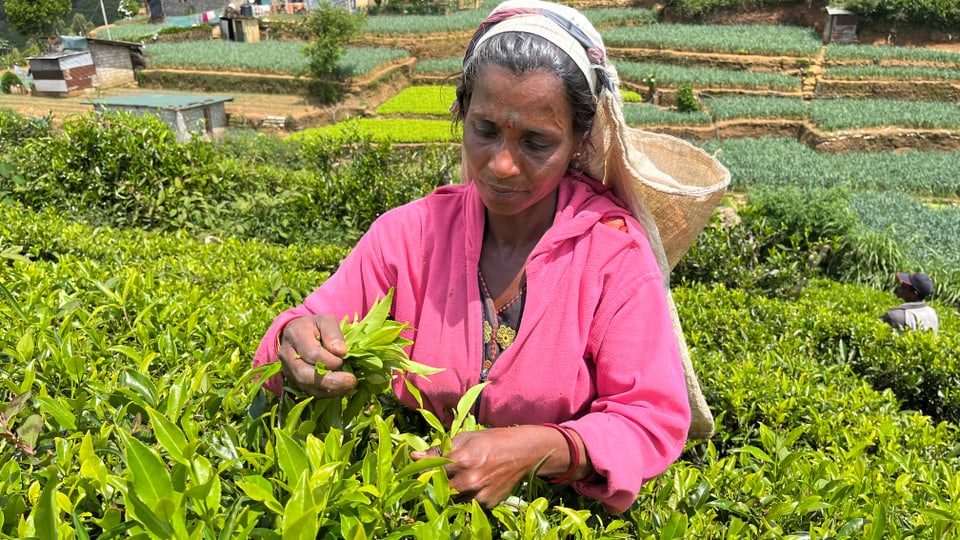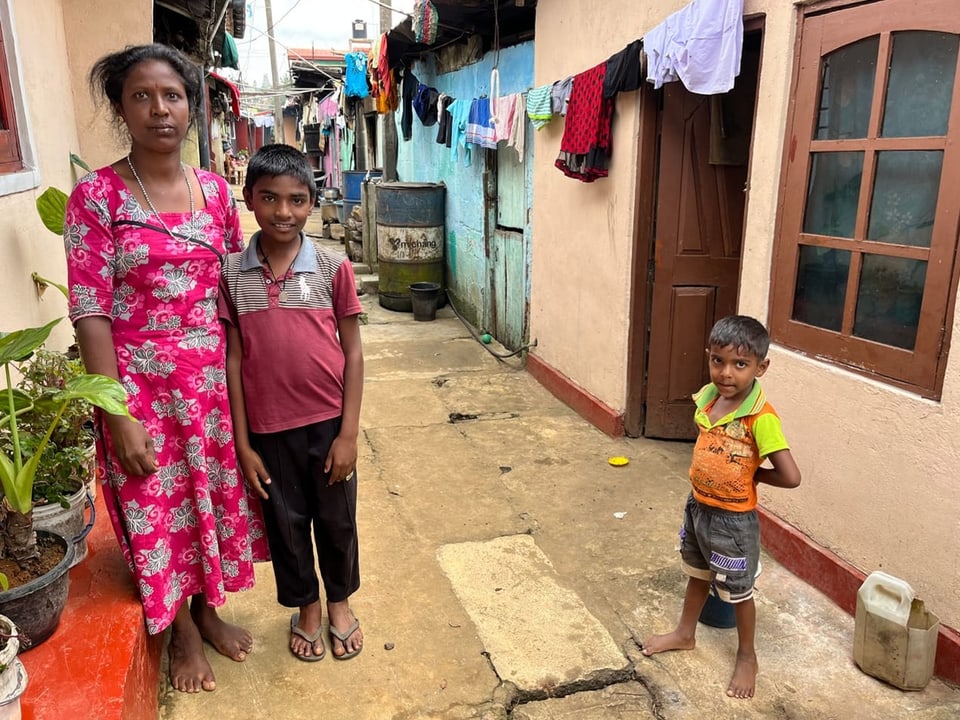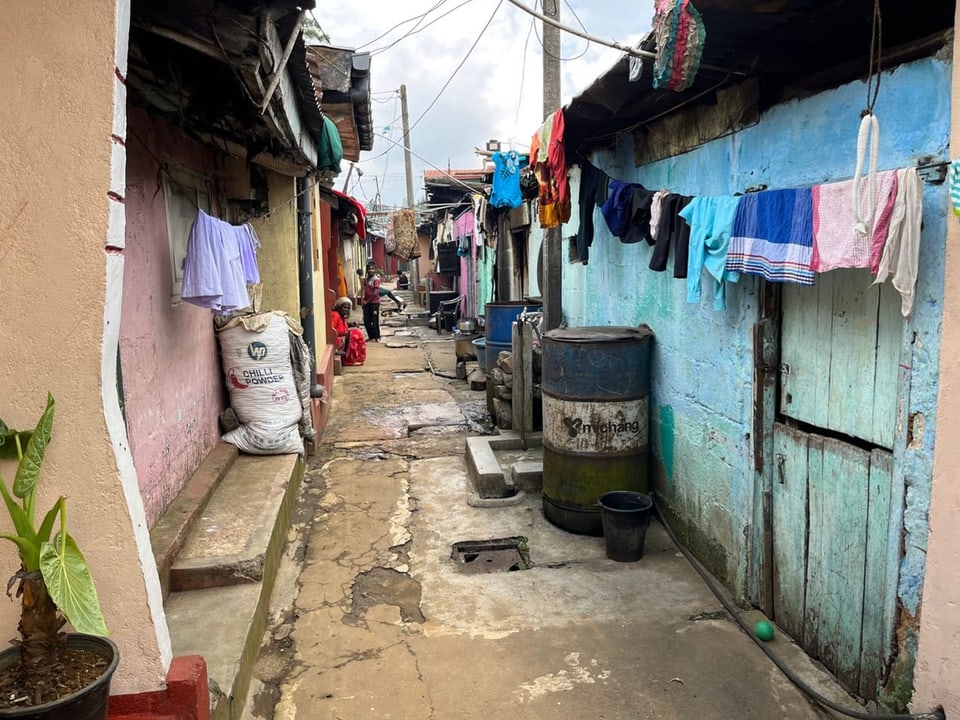In the cool highlands of the holiday island of Sri Lanka. A tea picker stands on the steep slope of a tea plantation up to her hips in shiny green tea plants. She introduces herself as Vasuki. The woman picks off the top, still light green leaves with nimble fingers – and, when her hand is full, quickly stuffs them into a large sack on her back.
Legend:
Hundreds of thousands of tea pickers work like Vasuki on the plantations in the highlands of Sri Lanka.
SRF/Maren Peters
“We have to pick at least 18 kilograms of tea leaves per day,” says Vasuki. For this she gets 1,000 Sri Lankan rupees. That’s the equivalent of 2.70 francs.
If she picks less, there are deductions
The 41-year-old in a holey pink fleece jacket takes a short break and shows her palms: they are cracked from the hard tea leaves that she tears off day after day.
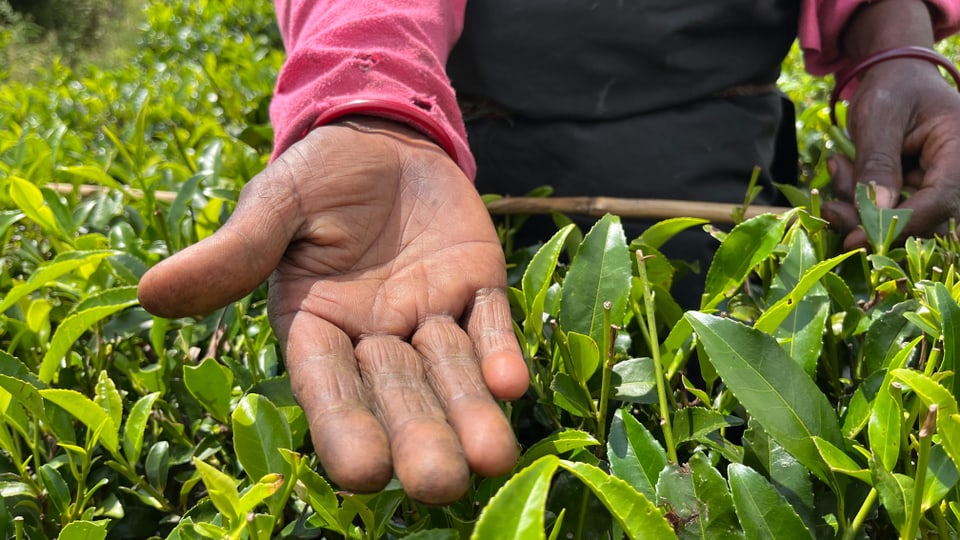
Legend:
The working conditions on the tea plantations are precarious. This also has physical consequences.
SRF/MAREN PETERS
Like Vasuki, hundreds of thousands of tea pickers work in the Nuwara Eliya tea region in the highlands of Sri Lanka. The work in the picture-perfect surroundings is hard, mostly female and comparatively poorly paid.
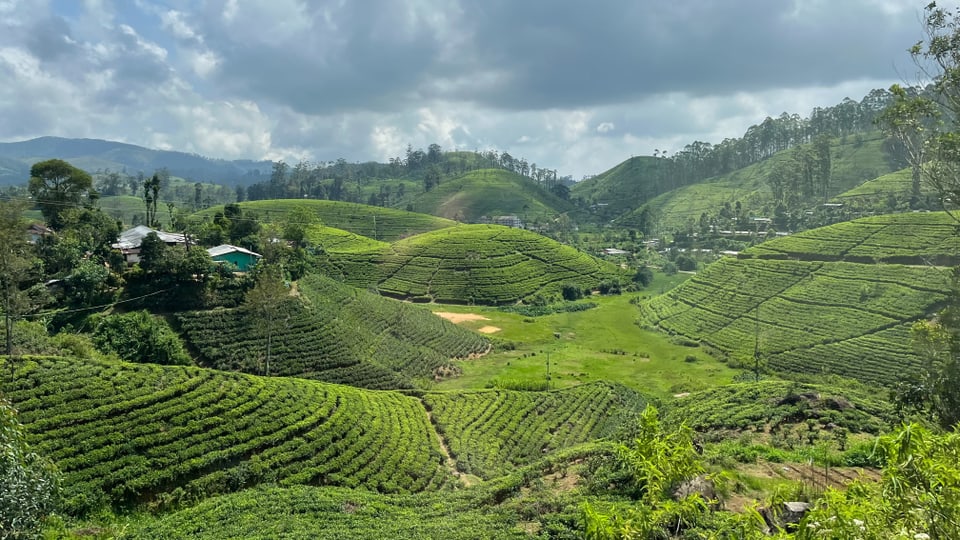
Legend:
The Nuwara Eliya tea region in the highlands of Sri Lanka.
SRF/Maren Peters
With high inflation, which temporarily climbed to 86 percent during the severe economic crisis a year ago, there is hardly anything left of what little was left. “It’s not enough to live on,” says Vasuki. “But what can we do?”
A study by the Sri Lankan University of Peradeniya shows that a tea picker would have to earn a good 2,500 rupees per day – on at least 21 working days per month – in order to cover the cost of living given the high inflation. That would be two and a half times the current daily wage.
Vasuki’s husband is a day laborer and earns something extra: And yet it’s not enough to buy enough food for the parents and their two teenage children. «Sometimes I’m hungry. And so are the children,” says Vasuki.
The consequences of Sri Lanka’s economic crisis
Sri Lanka is facing the worst economic crisis in its history. The very poorest, including the Tamil tea pickers and their families, suffer particularly from the consequences. The union has demanded more money from the tea companies, says Vasuki’s colleague, who introduces herself as Gelitshmi and is picking tea leaves a few meters away. But the companies refused to pay more.
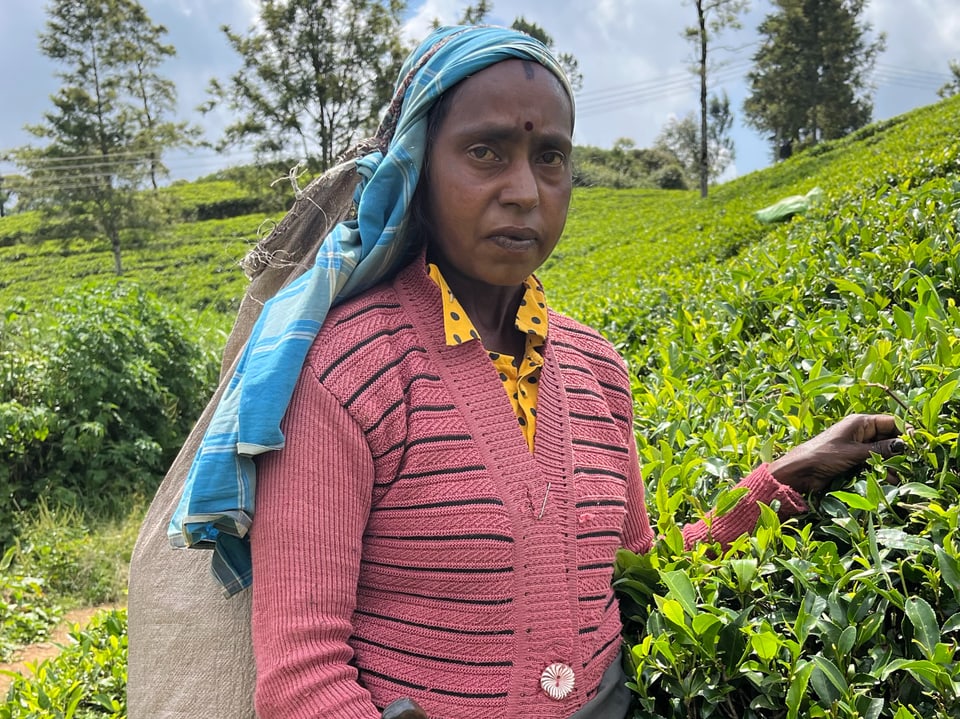
Legend:
Vasuki’s colleague Gelitshmi. The two women are tea pickers on the Sri Lankan plantations.
SRF/Maren Peters
Roshan Rajadurai is the boss of a tea plantation and chairman of the Planters Association of Ceylon, i.e. the planters’ association of Sri Lanka.
We cannot pay the pickers more than we earn.
The stocky man could have come from a colonial film, with his shorts and white gaiters over laced leather boots. “We can’t pay the pickers more than we earn,” Rajadurai told SRF on the edge of a plantation. Because the government suddenly banned the import of fertilizers and pesticides two years ago, the tea harvest was miserable.

Legend:
Roshan Rajadurai, head of a tea plantation and chairman of the Planters Association of Sri Lanka.
SRF/Maren Peters
Officially, the government wanted to switch to organic farming. The actual reason may have been that the government ran out of foreign currency. “Now there is fertilizer in Sri Lanka again,” says the plantation boss, “but it is much more expensive than before the ban.”
As a result, the production costs for tea have risen massively – and are higher than in any other country in the world. But retailers did not want to pass on the increased costs to consumers.
High inflation is of course a problem for tea pickers, says Rajadurai. But entrepreneurs cannot be blamed for inflation. Politicians have a duty there.
The appearance of the seal of quality
The plantation where Vasuki and Gelitshmi pick tea is certified by the Rainforest Alliance. The non-profit organization guarantees, among other things, fair pay and humane treatment – which many consumers trust. In the case of the Sri Lankan tea pickers, is this just greenwashing?

Legend:
The certification company Rainforest Alliance continues to let consumers believe that the workers are paid fairly.
SRF/Maren Peters
When asked, the Rainforest Alliance wrote: “We are deeply affected that women workers in Sri Lanka cannot make a living.” The 1,000 rupees wage per day is the government’s minimum wage. But the cost of living has tripled since last year. Although certification can form an important basis for social and environmental sustainability, it cannot solve a country’s socio-economic problems.
The certification company continues to let consumers believe that the workers are paid fairly.
After all, the Rainforest Alliance writes, at the end of July it asked companies that sell certified tea to charge a surcharge. Among other things, it should benefit the pickers. The organization cannot quantify whether and how many companies want to take part. Whether the surcharge would be passed on to the pickers is another question.
Plantation boss Rajadurai has a recommendation for the starving pickers: If you want to earn more, you can look for a second job, he says. There is enough work.
We no longer eat meat, fish or fruit.
Saman Sathiyanathan, who does not want to give his real name for fear of being fired, has had a second job for a long time. The father of the family, whom we meet in his simple home in the evening, has been spraying pesticides in the tea fields for 15 years. His parents also worked on the plantations.
Living barracks
“One wage is not enough for us,” says Saman. But his wife, a former tea picker, is ill and can no longer work. But even with his two jobs, it is very difficult for the family of four to make ends meet. “We no longer eat meat, fish or fruit.” The only thing they didn’t skimp on was the children’s education.
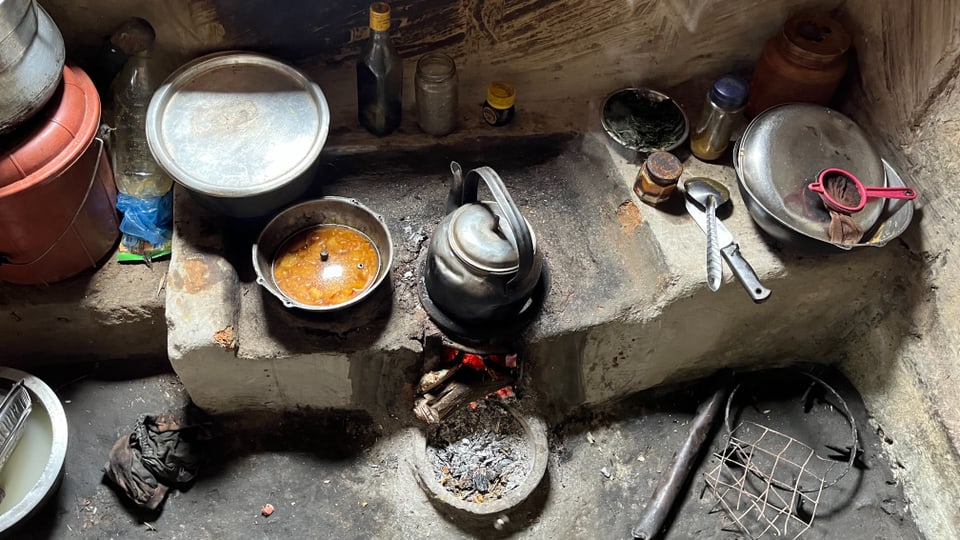
Legend:
Savings are also made on food, says the father of the family, who even has to work two jobs at the same time. One wage is not enough for a family, he says.
SRF/Maren Peters
The two teenage children sit in the living room and nod. The son dreams of a career as a software engineer, his younger sister wants to study finance. “We don’t want our children to be treated as disrespectfully as we were,” says their father. “They should have a better life one day.”
